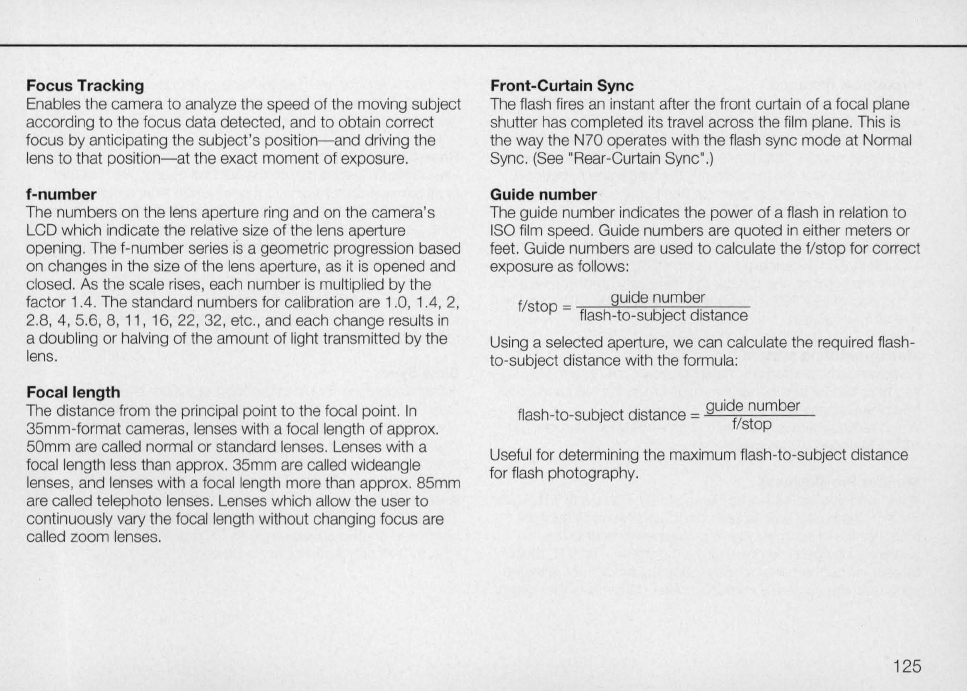
Focus Tracking
Enables the camera to analyze the speed of the moving subject
according to the focus data detected, and to obtain correct
focus by anticipating the subject's
position-and
driving the
lens to that
position-at
the exact moment of exposure.
f-number
The numbers on the lens aperture ring and on the camera's
LCD which indicate the relative size
of
the lens aperture
opening. The f-number series
is
a geometric progression based
on changes
in
the size
of
the lens aperture,
as
it
is
opened and
closed.
As
the scale rises, each number
is
multiplied by the
factor 1.4. The standard numbers for calibration are 1.0, 1.4,
2,
2.8,
4,
5.6,
8,
11
,
16,22
,32,
etc., and each change results
in
a doubling or halving
of
the amount of light transmitted by the
lens.
Focal length
The distance from the principal point to the focal point.
In
35mm-format cameras, lenses with a focal length
of
approx.
50mm are called normal or standard lenses. Lenses with a
focal length less than approx. 35mm are called wideangle
lenses, and lenses with a focal length more than approx. 85mm
are
called telephoto lenses. Lenses which allow the user to
continuously vary the focal length without changing focus are
called zoom lenses.
Front-Curtain Sync
The flash fires
an
instant after the front curtain
of
a focal plane
shutter has completed its travel across the
film
plane. This
is
the way the N70 operates with the flash sync mode at Normal
Sync.
(See
"Rear-Curtain Sync".)
Guide number
The guide number indicates the power of a flash
in
relation to
I
SO
film speed. Guide numbers are quoted
in
either meters or
feet. Guide numbers are used
to
calculate the f
/s
top for correct
exposure
as
follows:
fI t _ guide number
s op - flash-to-subject distance
Using a selected aperture, we can calculate the required flash-
to-subject distance with the formula:
flash-to-subject distance
=
9Uidf~s~~;ber
Useful for determining the maximum flash-to-subject distance
for flash photography.
125


















